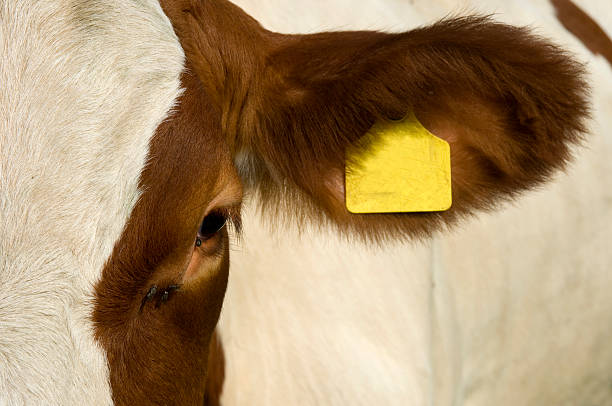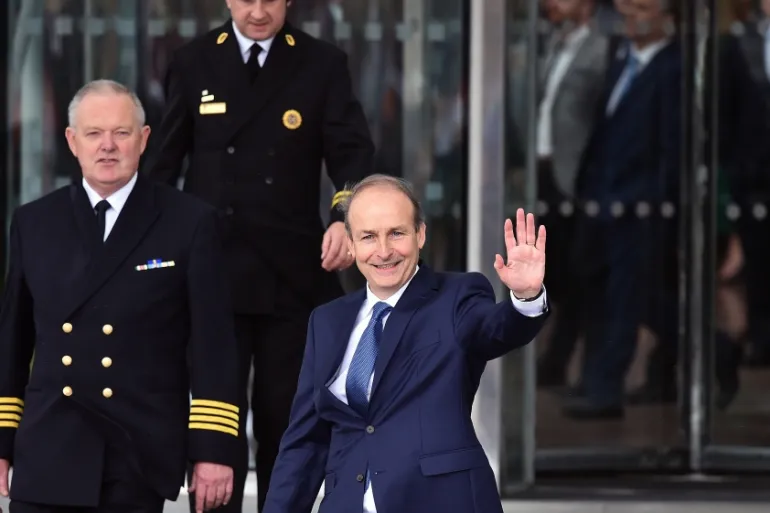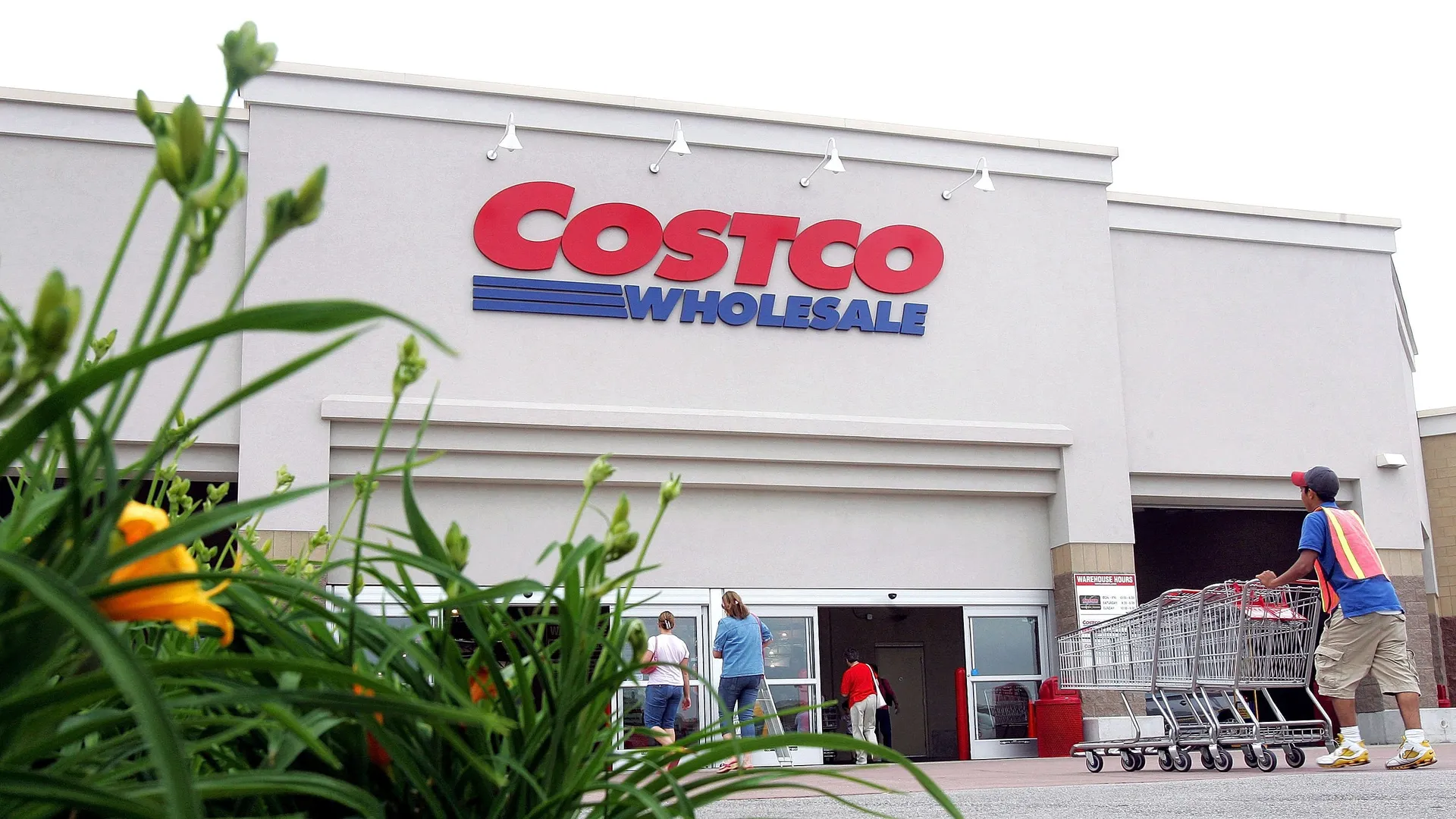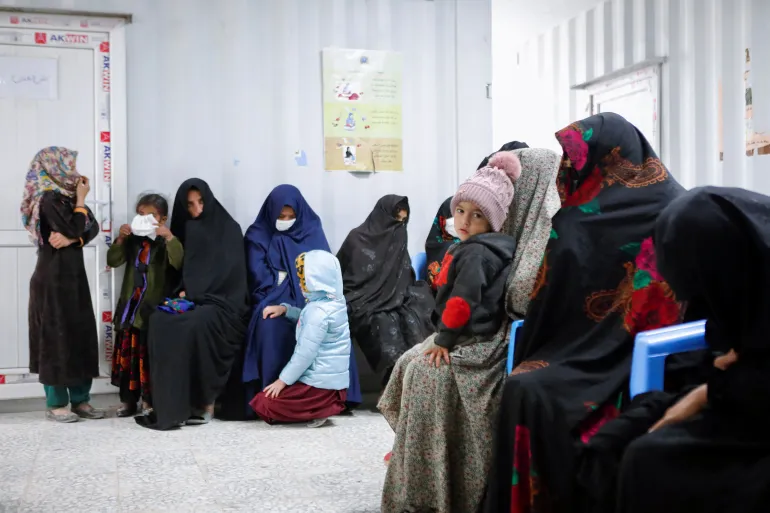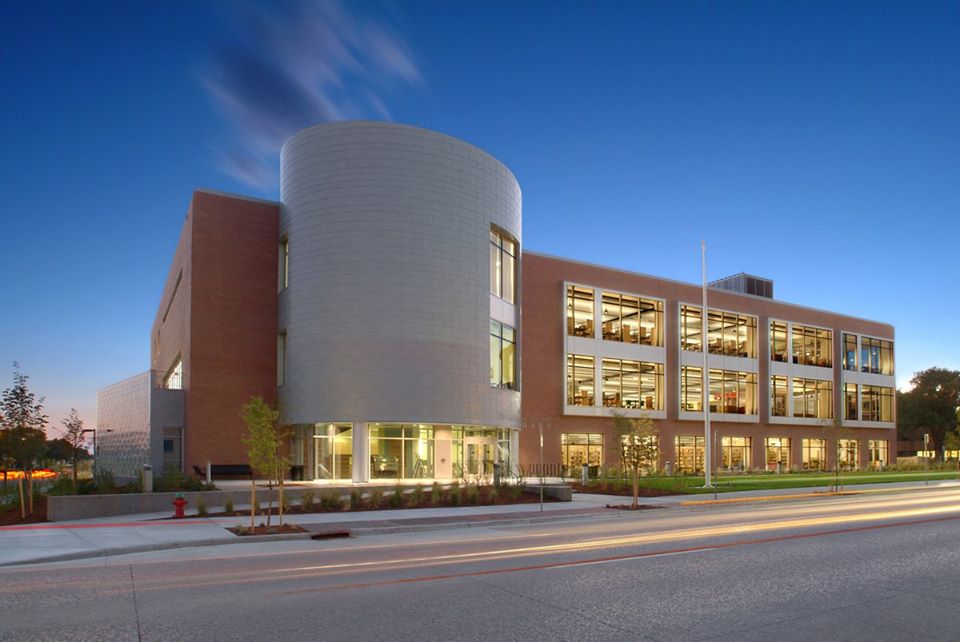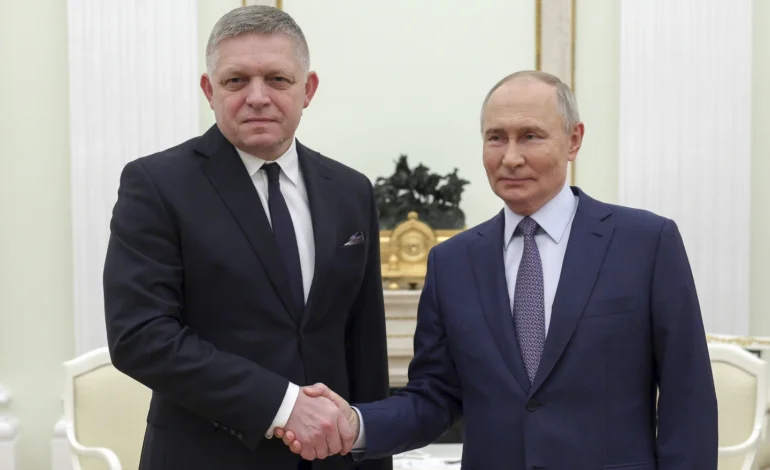Slovak Prime Minister Robert Fico met with Russian President Vladimir Putin in Moscow on Sunday, marking a visit to the Kremlin by a leader of an EU member state, The Associated Press reports.
The working visit, as described by Kremlin spokesman Dmitry Peskov, saw Fico and Putin engage in one-on-one discussions focusing on “the international situation” and the crucial topic of Russian natural gas deliveries to Europe, particularly to Slovakia.
The meeting comes at a sensitive time as the five-year agreement for Russian gas transit through Ukraine is set to expire at the end of this year. Ukrainian leader Volodymyr Zelensky has said that Kyiv will not renew the agreement. Fico, however, has publicly said that this would harm Slovakia’s interests.
Following his meeting with Putin, Fico said on Facebook that he informed EU leaders about the trip on Friday. He said his visit was a reaction to Zelensky’s stance in Brussels regarding gas transit and that Zelensky was in favor of sanctions against Russia’s nuclear program, which Fico said is unacceptable to his country that relies on nuclear energy. Fico said that Putin had confirmed Russia was still willing to deliver gas to the West. They also discussed the military situation in Ukraine and opportunities for a peaceful resolution as well as normalizing relations between their countries.
The visit has been condemned by major Slovak opposition parties.
Slovakia has been seeking alternatives for Russian gas, recently signing a short-term pilot contract with Azerbaijan and a deal to import US liquefied natural gas through Poland. The country also has options to receive gas through networks in Austria, Hungary and the Czech Republic, allowing them to import from Germany and other suppliers.
Visits and phone calls between European leaders and Putin have been scarce since the start of the conflict in Ukraine. However, Hungary’s Prime Minister Viktor Orbán visited Russia in July, and Austrian Chancellor Karl Nehammer met with Putin early in the war.
Fico’s stance on the war in Ukraine sharply contrasts with the majority of EU leaders. Since his leftist party Smer (Direction) won elections, Fico has ended military aid to Ukraine, criticized EU sanctions against Russia, and vowed to block Ukraine from joining NATO.
Fico has also been a rare senior EU figure to appear on Russian state television following the Ukraine war. In an interview in October he argued the West had “prolonged the war” and declared he was ready to negotiate with Putin. Fico has also pledged to attend a military parade in Moscow next May marking the 80th anniversary of Nazi Germany’s defeat, echoing concerns over Nazism in modern Ukraine.

